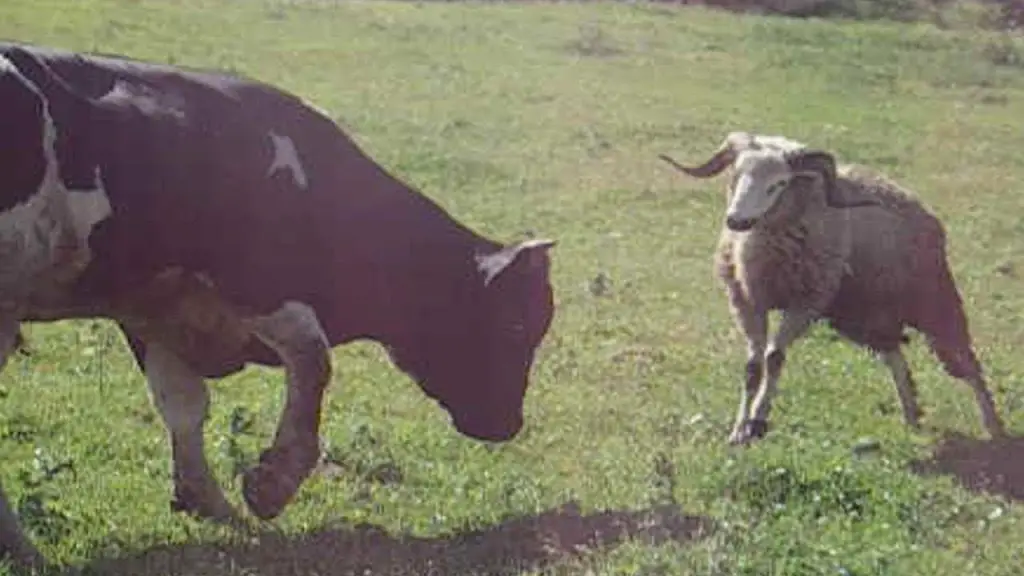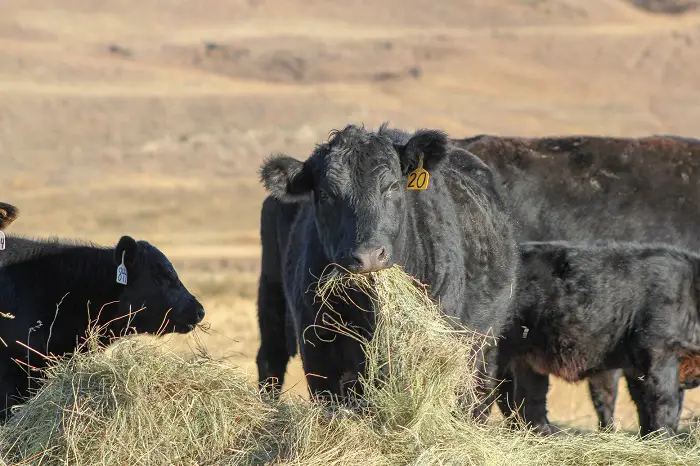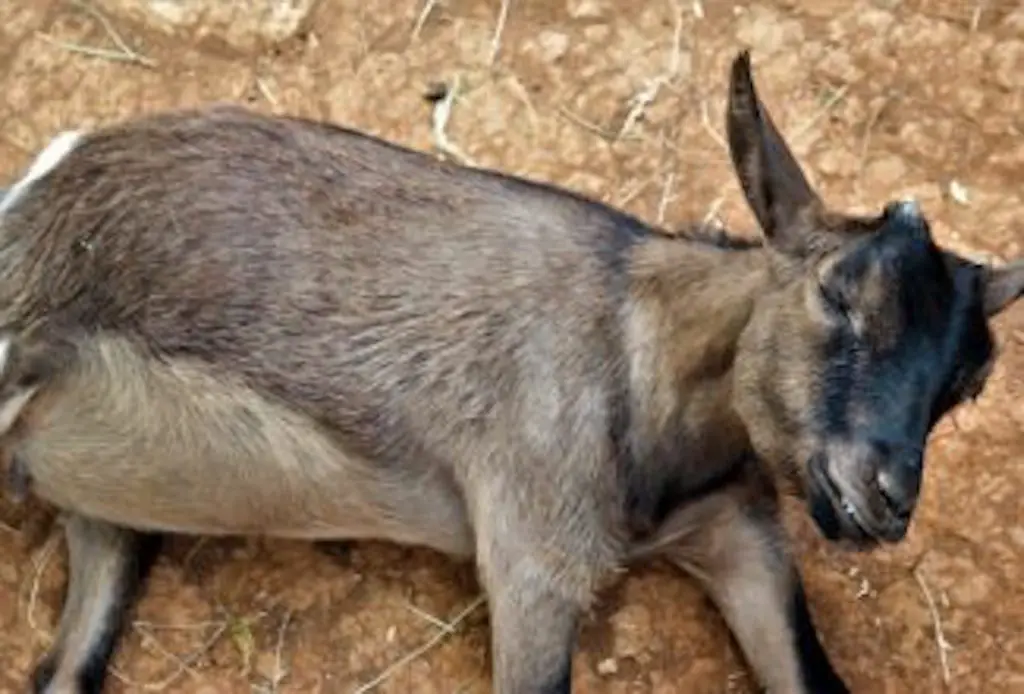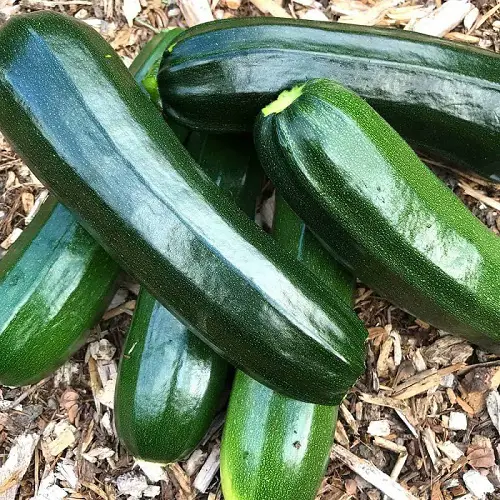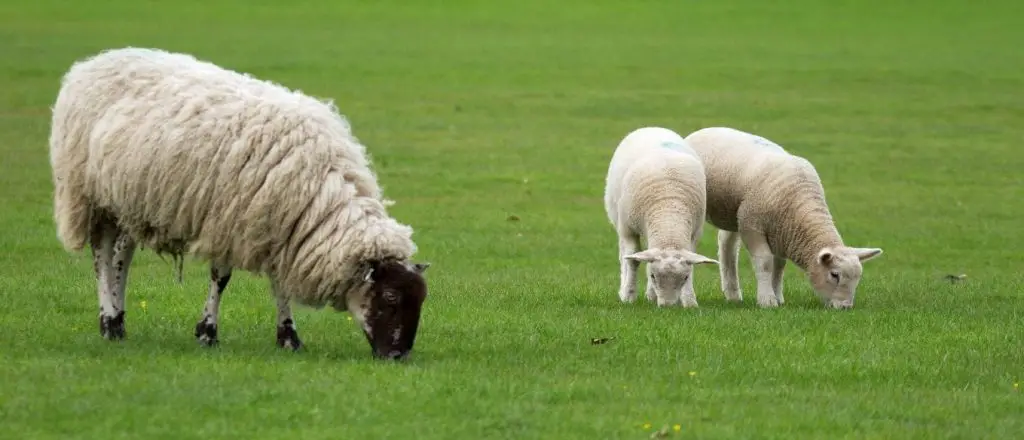There are different types of livestock. All these types of livestock have different temperaments. Temperament refers to the livestock’s normal manner of thinking, behaving, or reacting. This is an important element to understand about livestock. This is because it will help you know how you should rear the livestock. Different livestock breeds under the same species can also have different temperaments. Today let us look at sheep. Sheep farming is lucrative and offers 3 main niching options. Some go for sheep meat production. Others prefer sheep wool production. Some for sheep milk production though rarely exclusively. Can sheep defend themselves though?
Contents
Understanding Sheep’s Temperament
Understanding sheep’s temperament or personality is central to our subject matter. There are a number of adjectives used to describe sheep. Some of them are timid, meek, gentle, calm, aloof, and so on. Sheep are also considered non-aggressive or docile. All these point to the type of personality sheep have. Another personality attribute of sheep is that they are gregarious. This means they prefer to be in groups all the time. Sheep are also easily scared; typically quite nervous. That temperament is what feeds into whether or not sheep can defend themselves. When you put all those attributes together, you begin to have an idea of whether or not sheep can defend themselves.
Can Sheep Defend Themselves?
The answer is largely no though there are certain things they do that could be considered defending themselves. Sheep generally exhibit an inability to defend themselves. When danger presents itself, the sheep’s first reaction will be to flee. Their first natural instinct is never to defend themselves. No wonder sheep are often labelled as prey animals. It is because they are highly susceptible to attacks by predators. Once they have fled they stop at what they deem a safe distance.
Then they group themselves together often facing the predator. That in a way can be some means of defending themselves. This is because a predator might find it hard to charge at a group. Predators often seek to separate one or more sheep from the group. Thus, for as long as the sheep stay intact an attack may be averted. Sheep usually have precautionary characteristics that make it easier for them to identify danger early.
Sheep May Defend Themselves
There are scenarios in which sheep may actively and directly defend themselves. That will depend on the type of predator in question though. For instance, rams (i.e. male sheep) may defend themselves. Some ewe (i.e. female sheep), especially with commanding personalities, may defend themselves too. They can defend themselves by charging towards the predator. In some cases they can trample on the predator. It is also not surprising to find sheep head butting a predator. Sheep have some hierarchical structure so the group leaders will often do such. Thus not all sheep can be able to defend themselves. Plus it depends on the nature of the attacker.
Precautionary Measures Sheep Use
Sheep Move Windingly
There is way that sheep normally move about. They seldom move in a straight line. They move in a winding fashion. That enables them to have clear partial back views on either side. As in, when it makes a step forward to the left its left eye sees the back. The same happens when it makes a step forward to the right. All the while, the other eye will be seeing the front. That ends up being a precautionary measure that helps them spot danger early.
Sharp Senses
Sheep generally have sharp senses. This helps them to detect predators early. For instance, their eyesight has a broad angle of vision. Sheep have the ability to see predators from as far as over 1.3 kilometres away. Their sense of hearing is quite sharp as well. Sheep can also pick the scent of predators in the vicinity. Sheep have also been found to be averse to pain. This helps them mask any vulnerability a predator might capitalize on. Put together, all these are early detection measures that in a way constitute a defence.
Lookouts And Callouts
Sheep actually have lookouts and callouts. This means there are sheep that will be keeping an eye and ear out. This dedicated role enables them to spot danger early. They even have some callouts signs or sounds that other sheep identify. Once those callouts are made, the sheep know it is time to regroup and flee. There are also collective sounds the sheep make in the face of danger. That can unsettle the predator or alert human guardians.
Human Interventions Are The Best In Defending Sheep
The best way to defend or keep sheep safe is by human interventions. One of the most common ones is a human guardian being close by when sheep roam around. Another approach is to use guardian animal e.g. dogs. It is important to note that the dog(s) should be well trained. This is because dogs are ironically one of the most common sheep predators.
This usually wards off any potential predators. Making the sheep inaccessible is paramount. It is also important to put perimeter fencing. That way the sheep can forage in secure settings. The same applies to the sheep’s housing; there is need to build secure sheep housing. Corrals are often recommended for this. The housing is particularly for overnight safety.
Final Words
Can sheep defend themselves? Well, the short answer is, no they cannot. If we are to say they defend themselves somehow, that would be in the form of running away. Of which that may not be a defence per se since they are not particularly that fast. Sheep do have sharp instincts which help them detect and even avoid attacks. However, it is important to basically consider sheep as defenceless. That is why the best way for sheep to defend themselves is to have a defender. That is in the form human protection or other measures a human can put up. Otherwise leaving sheep alone to defend themselves is a huge risk.
